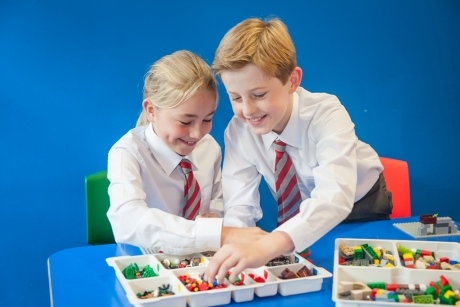
As experts discuss the importance of Key Stage 3 teaching in the press, STO rounds up a selection of top trips for the age group, across key subject areas.
On 25th June, the Times Educational Supplement ran an article that referred to Key Stage 3 as the 'bread and butter of teaching'.
The feature suggested that while GCSEs are important, there is evidence to suggest that Key Stage 3 is the time during which teachers can really have an impact on their pupils.
In the piece, English teacher Anne Williams commented; "Key Stage 3 is where teachers can really instil love for a subject and set down strong roots of understanding."
With this in mind, STO looks at a collection of Key Stage 3 trips, linked to key subjects, which could help to build even more of a passion in pupils.
Maths
PGL runs Maths residentials for Key Stage 3 pupils. The focus is on collecting data, applying theories, and making the subject relevant to real life. So, for example, children will gather data during a zip wire session before calculating factors like speed, using algebra.
At Mother Shipton's Cave in north Yorkshire, meanwhile, students can follow a Maths trail. On this trail they will do everything from solving ratio problems to working out averages from a frequency table. At the same time they'll be exploring the attraction, including the cave and the petryfying well.
English
At Legoland Windsor Key Stage 3 pupils can take part in a workshop called Lego, Camera, Action! In this session students collaborate to create their own Lego movie through the process of storyboarding, script writing and the implementation of Stop Motion technology.
Schools visiting The Queen's Gallery at Buckingham Palace can take part in a creative writing workshop called A Grand Tour of Venice. In this session, pupils explore the exhibition Canaletto & the Art of Venice and use the pieces on display as sources to inform their descriptive writing and develop characterisation skills.
Science
The Deep offers Key Stage 3 pupils the opportunity to take part in a variety of hands-on science sessions, including Mackerel Mondays. In this workshop students get to perform a post-mortem on a mackerel fish, looking at external features, body organs, stomach content, life processes and cause of death.
At Chester Zoo, meanwhile, Key Stage 3 students can participate in a number of educational sessions. These include Applied Science, in which pupils learn how Science is used to monitor and care for over 20,000 animals at the zoo. Another highlight of the offering is a conservation workshop, which teaches pupils about interactions and interdependencies, relationships in an ecosystem, genetics and evolution, inheritance, chromosomes, DNA and genes, and ecosystems.
Computing
Pupils can learn about the importance of computing at Bletchley Park, home of the code breakers, in Buckinghamshire. The attraction runs a range of sessions linked to the computing curriculum, including Codes & Ciphers and a workshop called Cyber Secrets, which also touches on the topic of online safety.
At Paulton's Park students can take part in a dedicated ICT session, which is designed to teach pupils how computers are used in the real world. Participants learn about the different uses of ICT around the park and discover how computers have benefited the park as a business.










